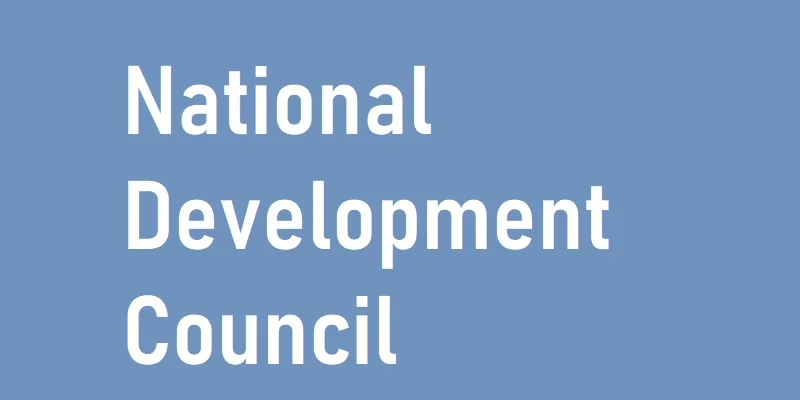National Development Council of India
The National Development Council (NDC) is a policy-making framework of India established in 1952. it is a platform that cooperates and coordinates between the central and state governments on development issues.
This article is about “National Development Council” and provides key points for your UPSC and other competitive exam preparation:
Background of NDC
- The NDC was established in 1952. It was created as a statutory body under the “Resolution of the Government of India Act, 1935.”
- Earlier, NDC played a key role in formulating the Five-Year Plans.
- Focus: NDC’s main focus was economic growth, reducing poverty, promoting industrialization and agriculture development in India.
- Jawaharlal Nehru was actively involved in the country’s development policies through the NDC.
- In 2015, the Planning Commission was replaced by the NITI Aayog (National Institution for Transforming India). However, NDC continued to exist as a forum for discussion and consultation.
Main functions of the National Development Council:
- Formulate Five-Year Plans and long-term development plans.
- Recommend on issues such as poverty, education, healthcare, infrastructure, and employment.
- The NDC promotes economic growth, social justice, and environmental sustainability.
- Monitors and evaluates the performance of different sectors and programs.
- To approve the plans (basically five-year plans).
- To provide necessary advice to the Central and State Governments on the above matters.
Important Points of NDC
01. The Prime Minister was appointed ex-officio Chairman of the National Development Council.
02. The Council consists of the Prime Minister, the Chief Ministers of the States, the members of the Planning Commission, the Administrators of the Union Territories and the members of the Union Cabinet.
03. The body was formed based on a proposal by the central cabinet to ensure the country’s financial policy and healthy development system. The previous five-year plan was approved by the National Development Council.
04. As an advisory body, its main function is to advise the Central and State Governments and the former Planning Commission.
05. Other main objectives of the National Development Council are:
(a) Rapid development
(b) Establishment of balanced monetary policy
(c) Emphasis on socio-economic issues and
(d) Implementation of necessary policies in the national interest.
06. The Prime Minister usually convenes the National Development Council twice a year. The agenda of the Board is decided in consultation with the Central Government, the State Governments, and the Planning Commission (now the NITI Aayog) (the issues to be discussed are decided by the Prime Minister).
07. K. Santhanam, in his famous book ‘Union-State Relations in India,’ has termed the National Development Council as the Super-Cabinet of the United States of India.
08. A detailed discussion and introduction of the National Development Council are mentioned in the book ‘Indian Administration’ (a famous book written by Maheshwari).
09. The role of the National Development Council is also mentioned in the book ‘Federalism in India‘ (written by Ashok Chandra).
10. Maurice Jones in his book “Indian Govt. And Politics” called the council an advisory body instead of a super cabinet.
11. The chief ministers of all the states could become ex-officio members of the National Development Council. The first president of the National Development Council was Pandit Jawaharlal Nehru.
12. The power to deliver the inaugural address of the Council is vested to the Prime Minister. The National Development Council originated primarily as an advisory board.
At present, the NITI Aayog has a significant impact on all strategies and policies. Since 2015 the policy, NITI Aayog has been led by the Prime Minister (Narendra Modi) of India.
